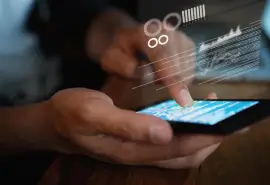The rise of social media has helped people to reconnect with friends and family members they have not seen in years. Social media is also a great way for businesses to interact with customers in real time. Unfortunately, social networking has also become a haven for hackers and criminals who are looking to steal your identity. Before you get back onto social media, there are some tips you can use for personal identity protection. In my career in data protection, I have seen people make colossal mistakes online and pay for it in some pretty horrible ways. The harder you work to avoid those mistakes, the better you will be able to protect yourself.
Do Not Give Your Significant Personal Information
Some more savvy people take identity protection to the extreme by not using their real names on social networking sites. But if your goal is to reconnect with friends and family, then using a fake name is not going to help you. Using your real name is fine on social media, but do not give up any of your other personal information. This includes, but is not limited to:
- Any of your phone numbers
- Your home address
- Your Social Security number
- The bank where you do business
- Stop Telling People Where You Are
I know it is fun to "check in" with your social media apps on your smartphone, but I cringe every time I see someone do that. Nothing throws out an invitation for criminals to rob your home more than telling people you are out and about. How does this feed into identity protection? When criminals break into your home these days, they are looking for your credit card statements and other personal information. Never announce on social media that you are not home.
Understand Privacy Guidelines
Did you know that your picture may be plastered all over the Internet as part of a social media advertising campaign? Part of a good data protection plan is understanding how your data is being used. Before you fill out a single field in a social media website application, spend some time reviewing the information privacy guidelines for the website. If you are uncomfortable with those guidelines, then do not sign up for the site.
Avoid Third-Party Programs
Anyone who has used social networking has seen third-party downloads being advertised on those sites. Did you know that many of those downloads are created by hackers and the social media website has no idea they are being offered? If you see a friend recommending that you download a program that seems suspicious, then avoid downloading it. Your friend's account may have been hacked, and downloading that third-party program could completely compromise your personal information.
Change Your Passwords
One of the best ways to prevent having your social media account hacked is to change your passwords frequently. If you keep the same password for months, or even years, then you are just inviting hackers to figure it out and break into your account. In my experience, a good way to discourage a hacker is to create a moving target that they cannot hit. By changing your password at least once a month, you are creating that frustrating moving target. Social media can be fun and informative. Unfortunately, like anything else good on the Internet, social media can also be dangerous. But if you know how to protect yourself and take the proper steps to prevent identity and data theft, then you can feel more comfortable enjoying the Internet's social world.
The rise of social media has helped people to reconnect with friends and family members they have not seen in years. Social media is also a great way for businesses to interact with customers in real time. Unfortunately, social networking has also become a haven for hackers and criminals who are looking to steal your identity. Before you get back onto social media, there are some tips you can use for personal identity protection. In my career in data protection, I have seen people make colossal mistakes online and pay for it in some pretty horrible ways. The harder you work to avoid those mistakes, the better you will be able to protect yourself.







